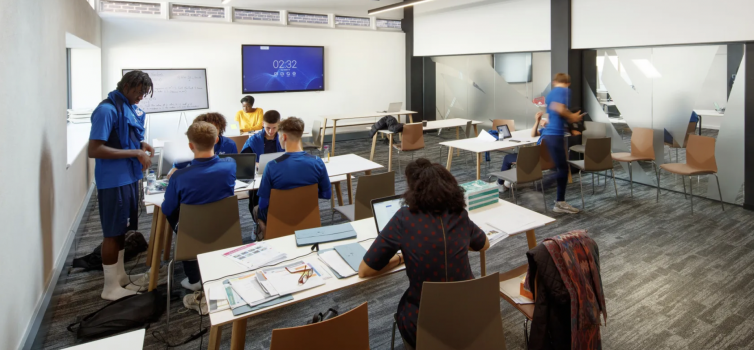Palace launch groundbreaking aftercare scheme for released players

Palace opened their redeveloped Category One Academy last October
Written by Simon Austin — February 1, 2022
CRYSTAL PALACE have become the first club in the country to offer a three-year aftercare programme to help scholars cope with the “trauma” of being released.
The service will be available to players who are released during or after the Professional Development Phase (17 to 21).
“A dedicated Player Care Officer will be in contact with all affected players for an extended period of time as we support them on their journey - typically helping them find a new club, education programme or a job,” Palace explained in a statement.
Other clubs do provide aftercare for released players, but nothing as long-term or formal as the scheme Palace have launched. Liverpool’s Player Care Manager, Phil Roscoe, has created an Alumni Database and newsletter, as well as proving “proactive individual support” for scholars who are released.
Southampton also have an alumni database that tracks players who have been released at the end of their scholarship (U18). This database, which stood at 165 players in the summer of 2019, is managed by the club's Life Education and Performance Officer Ian Herding. It includes details of the last communication Herding had with each of the players.
Palace Chairman Steve Parish has outlined the rationale behind his own club's plans.
“We have a duty and moral obligation to nurture and guide all the 200+ players within our care," he told the Palace website. "We recognise that when an older Academy player is released, it may feel like the end of the world for that young man and we must do our utmost to offer support to affected players through that process and guide them with the next stage of their journey.
“That typically begins with us providing introductions to new clubs or continuing to include the players in matches to enable other clubs to watch them play. But it may also be about helping them continue their education or begin a life outside of football in the workplace. Whatever their path is, we want to offer our support to them to help them achieve success.”
Academy Manager Gary Issott gave more detail in an excellent interview with Louis Langdown of The Football Family.
“We’re all aware of the sheer volume of players that can drop out at PDP after maybe 10 years of being in Academy football from eight to 18 or 12 to 22 and we know the Academy system enriches players’ experience,” Issott said.
“It’s often very difficult for those players to deal with the initial trauma of leaving a professional club and understanding what transferable skills they have, what value they add to other career pathways, or even how they begin to pursue other interests and passions.
“We’ve seen lots of boys struggle when leaving the game and I can talk about my experience. I struggled leaving Luton Town in the early 90s and I can only go back retrospectively and understand that was due to a bit of grieving. I was missing football and my friendship group.
“So, with likeminded people at the club, we made the decision that we want to give players a three-year after-care package.
“The Chairman has been very supportive in this initiative. Not only is our remit to produce first-team players for CPFC, but we have a duty to nurture and guide the players within our Academy - should they make the first team or not - and he’s always promoted the values of empathy and places the human at the heart of our processes.”
Issott said “we didn’t just stumble on” the idea of offering three years of support. “We tasked a working group within the club to consider the rationale behind when, how and why players might need or seek our guidance," he explained.
Palace would “consistently re-engage with as many players who love football to show them there is another way in life other than playing for the club,” Issott said.
They will “promote the many great opportunities (that) may exist at this club for you other than playing”, which may include potentially working in "medical, analysis, or the sport science department, maybe they want to be Technical Directors, maybe a coach, maybe along the mentoring/ player support area, or maybe in the business domain of the club such as marketing, media, graphic design, teaching.”
Issott finished by saying that player care “is the biggest growing department in Academy football right now - and rightly so.”
The Football Family is a team of current and former players, managers, coaches and educators. They pair their football knowledge and expertise with learning and teaching fellows from the Higher Education Academy to design bespoke mentoring and support initiatives.




-1.png)





